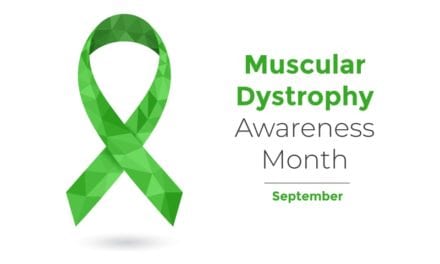Parent Project Muscular Dystrophy (PPMD) has awarded the University of Florida (UF) Wellstone Muscular Dystrophy Cooperative Center a grant for $348,891 for its research project to help understand and improve gene therapy for Duchenne.
The project, titled “Understanding and Improving AAV Gene Therapy for DMD” is led by H. Lee Sweeney, PhD, director of the UF Myology Institute and the Thomas H. Maren, MD, eminent scholar chair in pharmacology and therapeutics in the UF College of Medicine. Dr Sweeney has been the director of a Wellstone Center (one of the six) since 2005, which he relocated to the University of Florida in 2015.
COVID-19 has impacted many areas of research, including the allocation of funds at National Institutes of Health (NIH), which resulted in a tighter budget than previous years. This bridge grant provides supplemental funding to allow the continued collection of data at the University of Florida until the Wellstone Center can apply for a renewal in the summer of 2021, a media release from PPMD explains.
Duchenne, a fatal genetic disorder diagnosed in childhood, is caused by a change in the dystrophin gene that leads to an absence of the dystrophin protein. A prominent feature of the disease is a constant cycle of muscle breakdown and repair. Over time, this continual state of muscle degeneration and regeneration leads to fibrosis and the development of scar tissue. The impacts are also seen in the heart muscle, with heart failure as the leading cause of death in Duchenne
Gene therapy holds the promise of providing benefit to patients by delivering the instructions for how to make a micro-dystrophin protein to the muscle cells, where no dystrophin is produced. While this strategy may become a treatment option for some patients, for those individuals without access to gene therapies, there will remain a need to alter the inflammatory and fibrotic processes that result in decreased regeneration of skeletal muscle and cardiac dysfunction.
Additionally, in older patients where there may be more fibrosis, the strategy for delivering gene therapy may need to be altered to ensure successful delivery. Finally, while the potential benefits of micro-dystrophin in skeletal muscle are well understood, more research needs to be done to understand the impacts of micro-dystrophin on the heart.
Improve Gene Therapy Delivery
In this project, Dr Sweeney and his team at the University of Florida will evaluate ways to improve the delivery of gene therapy in disease with considerable fibrosis. Sweeney will also investigate if there are differences in how the loss of dystrophin impacts skeletal muscle compared to cardiac muscle and what this means for micro-dystrophin gene therapy. This information will potentially help inform the design of gene therapy and/or drug therapies to treat the hearts of people living with Duchenne, in a way that is independent of, or complementary to, gene therapy, the release continues.
“These are promising times for research into Duchenne, and we could not let the COVID-19 pandemic threaten our momentum. At the height of the pandemic, PPMD developed bridge grants to serve as an emergency temporary funding source so that key projects, personnel, or infrastructure may be preserved. The work Dr Sweeney is doing is integral to our understanding of how best gene therapy can be delivered to older patients and will be crucial for evaluating the impact of micro-dystrophin on the heart.”
— Eric Camino, PhD, PPMD’s Vice President of Research and Clinical Innovation
“PPMD and I are in agreement with the critical need to better understand the impact of emerging AAV-micro-dystrophin therapies, especially in the heart. If not for this bridge funding, we would have lost a year of progress while we await the decision from NIH on whether or not the NIH will continue to fund this work via our Wellstone Center. We owe the patients the best possible therapy that can be provided, so we need a thorough evaluation of the plusses and minuses of the current and future AAV treatment strategies.”
— H. Lee Sweeney, PhD
One of PPMD’s signature legislative achievements includes the passage of the 2001 Muscular Dystrophy Community Assistance Research & Education Act (MD-CARE Act) that mandated federal attention to all of the muscular dystrophies and led to the creation of scientific Centers of Excellence, named after the late Senator Paul D. Wellstone, across the country to accelerate muscular dystrophy research.
In 2015, the University of Florida was designated by the NIH as one of six Wellstone Centers to help translate scientific findings into strategies to improve the lives of muscular dystrophy patients.
“The Wellstone Centers of Excellence play a vital role in the success of many Duchenne and Becker research projects as the core facilities at each center provide invaluable resources for academic and clinician researchers. The important work of the UF Wellstone Center is an essential component of the research PPMD supports.”
— Eric Camino
[Source(s): Parent Project Muscular Dystrophy, PR Newswire]
Related Content:
Duchenne UK, Parent Project Muscular Dystrophy, Announce Research Grant Recipient
Pfizer Doses the First Participant in Duchenne Gene Therapy Study
FDA Fast-Tracks Duchenne Gene Therapy




